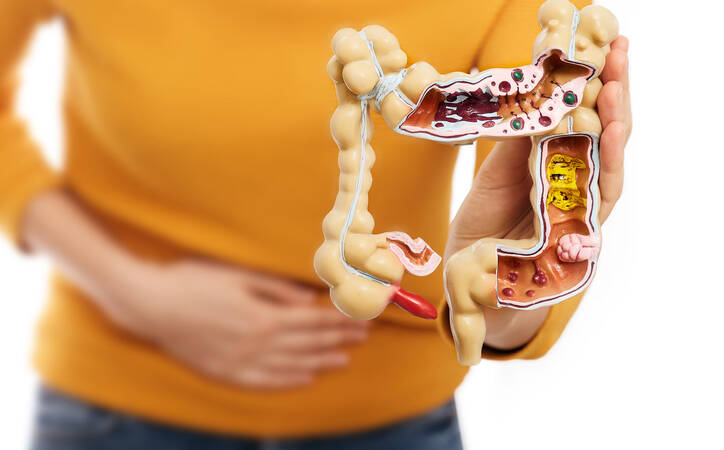Early Signs and Symptoms of Ulcerative Colitis

Ulcerative colitis is the most common type of Inflammatory Bowel Disease (IBD), which appears to affect men and women equally. The condition usually presents in late adolescence or early adulthood, though it can develop later due to changes in lifestyle. Currently, ulcerative colitis is thought to affect as many as 500 in every 100,000 people worldwide.
What Is Ulcerative Colitis?
Ulcerative colitis is a chronic disease that affects the lining of the colon. It causes inflammation of the gut lining, which will eventually lead to painful sores or ulcers. Ulcerative colitis is believed to be caused by an overactive immune response, which results in the body attacking its own cells and tissues in the gut.
Ulcerative colitis is categorized based on its severity and spread. The three types of ulcerative colitis are:
- Ulcerative proctitis: Accounts for roughly 30 percent of all cases. Affects only the rectum.
- Left-sided colitis: Accounts for roughly 50 percent of all cases. Affects the rectum and lower colon.
- Extensive colitis: Accounts for roughly 20 percent of all cases. Affects the entire colon.
Known Causes and Risk Factors
Scientists do not fully understand why some people develop ulcerative colitis and others do not. However, several possible triggers have been identified. These include:
- Smoking
- Excessive alcohol consumption
- Stress or anxiety
- A diet high in polyunsaturated fats
- Family history of ulcerative colitis
People of Ashkenazi Jewish heritage and white people are the most likely to develop ulcerative colitis.
Signs and Symptoms
Symptoms vary depending on the case and can range from mild to extremely severe. Some people experience longer period of remissions while others are frequently housebound due to the condition. The most common symptoms of ulcerative colitis are:
- Urgent bowel movements
- Loose stools
- Blood or pus in the stool
- Cramping and abdominal pain
- Diarrhea
- Rectal pain or bleeding
- Fatigue
- Fever
- Weight loss
Treatment Options
It is possible to manage very mild ulcerative colitis by making alterations to your lifestyle. Your doctor will discuss this with you, if they feel it is an option. The most common medical treatments for ulcerative colitis are:
- Anti-inflammatory drugs (to minimize colon inflammation)
- Pain killers and anti-spasmodic drugs (to minimize pain and cramping)
- Anti-diarrhea medications
- Immunosuppressants and other immune regulatory drugs
- Biologics (used only in severe cases)
In very rare cases, removing the affected area of colon via surgery may be necessary.
Talk To Your Doctor
The symptoms listed in this article can be caused by temporary illness and other less debilitating conditions. However, it is always best to make an appointment with your doctor if you have concerns. They will run tests that may include blood and stool tests, a colonoscopy or imaging to identify the source of the problem and recommend appropriate treatments based on the results.